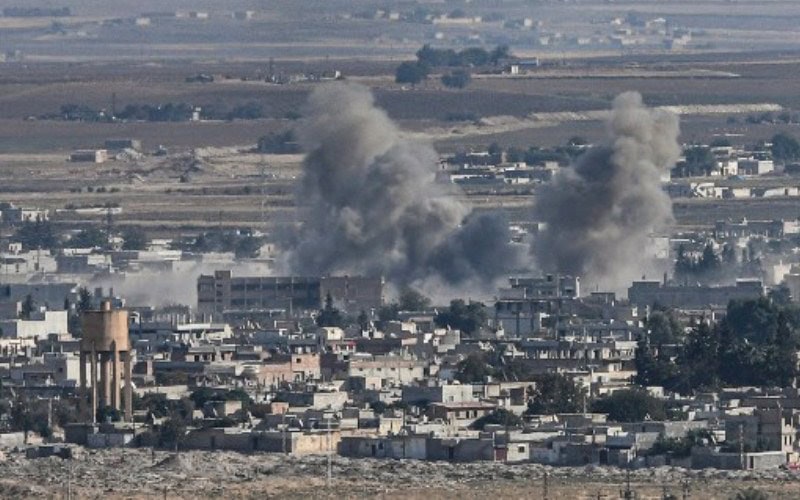Brussels: Turkey’s military operation in Syria was expected to spark “forceful” discussion at a NATO defence ministers’ meeting Thursday but Ankara risks little from its allies because of its strategic position, diplomats said.
Two-day gathering in Brussels
The issue dominated the two-day gathering in Brussels, with Turkey isolated among the 29 member states because of its incursion this month against Kurdish fighters, considered “terrorists” by Ankara but key in the fight against the Islamic State group in Syria.
NATO Secretary General Jens Stoltenberg has refused to condemn Turkey, saying it has “legitimate security concerns” along its border with Syria.
On arrival Thursday, he confirmed the ministers “will address the situation in northeast Syria” where he said a Turkey-US “ceasefire” accord struck last week had reduced fighting.
Diplomats described exchanges with Ankara’s representatives as “frank”. But they admitted that Turkey’s location at the gates of the Middle East and next to Russia gave it a strategic value weightier than the objections.
While discussions “are going to be forceful… there is no question of sanctioning Ankara or excluding Turkey (from NATO) — there is no procedure for that,” a high-ranking diplomat said.
US Defense Secretary Mark Esper, speaking at a think tank conference in Brussels before the meeting, said Turkey was “heading in the wrong direction”, especially with its deal struck this week with Russia to jointly patrol a “safe zone” in Syria that Ankara aims to set up.
“Turkey put us all in a very terrible situation and I think the incursion’s unwarranted,” Esper said.
He defended the withdrawal of US troops from northern Syria to leave a clear path for the Turkish operation.
“I was not about to put less than 50 US soldiers in between a 15,000-man-plus Turkish army preceded by Turkish militia and jeopardise the lives of those servicemen”. Nor was he “about to start a fight with a NATO ally,” he said.
US President Donald Trump on Wednesday summed up American strategy in Syria more bluntly, saying: “Let someone else fight over this long blood-stained sand.”
Turkey’s actions, its rapprochement to Russia and its threat to its European allies in NATO to unleash a wave of refugees if they dared criticise the assault in Syria have unnerved many in the transatlantic alliance.
German idea for troops
President Recep Tayyip Erdogan compounded concerns on Tuesday by agreeing with Russian leader Vladimir Putin to have Russian forces clear Kurdish militia out of Turkey’s “safe zone” and deploy forces to jointly patrol it.
Germany has floated the idea of an international force with a European component to establish a security zone in northeastern Syria.
Although the US embraced it, the initiative appeared to be getting little traction.
German Defence Minister Annegret Kramp-Karrenbauer had said she would raise the plan with her counterparts at the NATO meeting, but she was late to the start of the meeting on Thursday.
Stoltenberg said the German proposal would need UN approval to be implemented and therefore “needs to be discussed more in detail before any decision can be made”.
Belgium’s defence minister, Didier Reynders, said that “in principle we are in favour of such an agreement to work together — but than again, the situation is totally different now” with the Turkey-Russia agreement in northern Syria.

